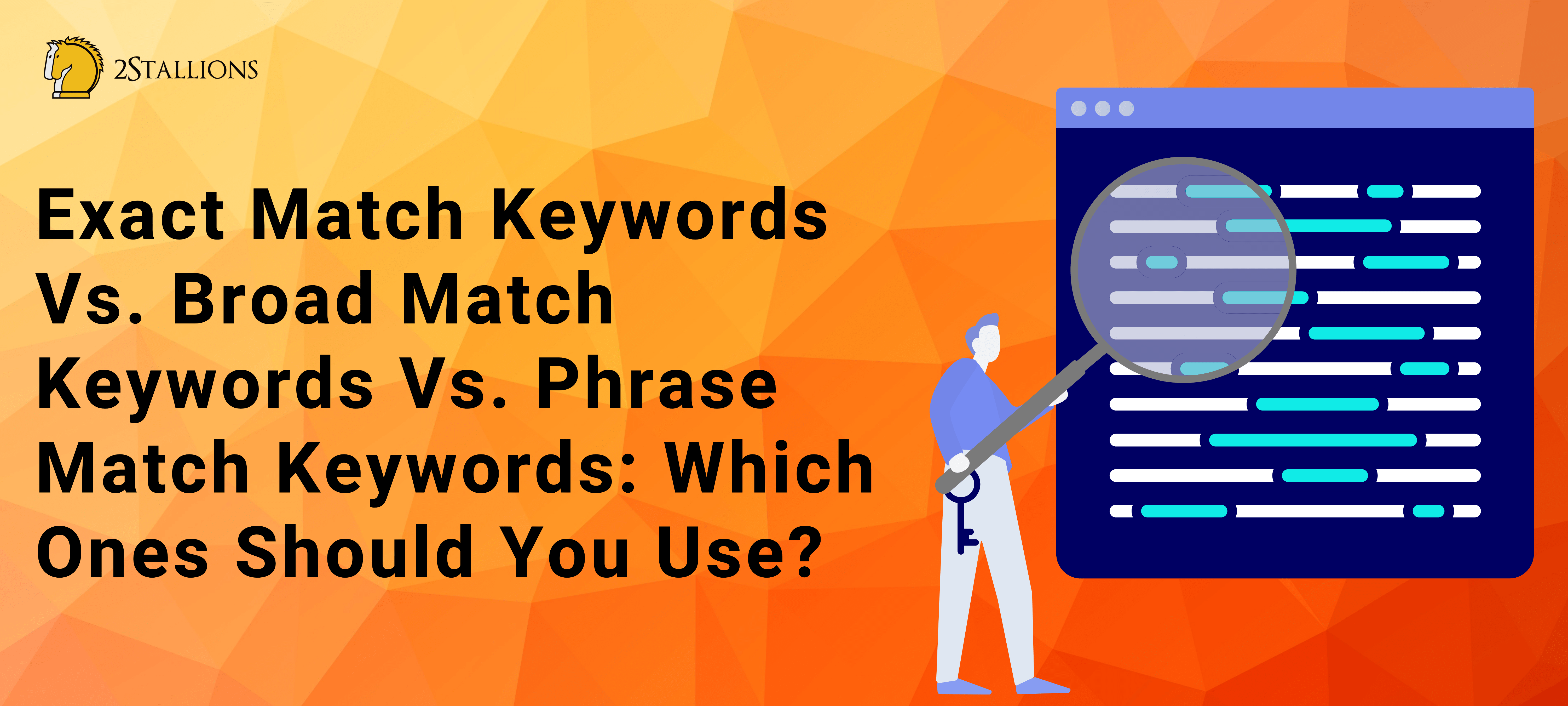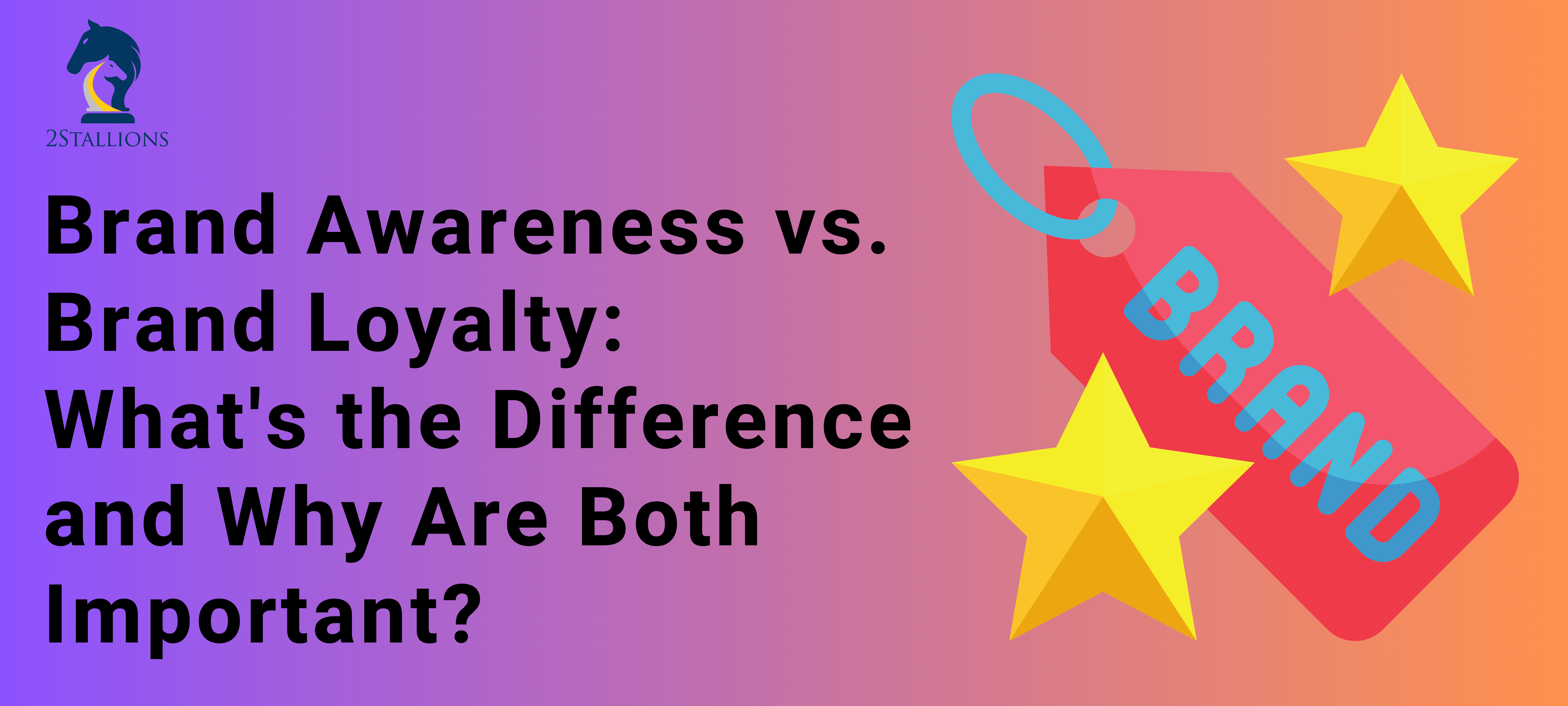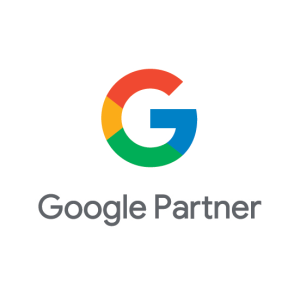SHARE

In the world of digital marketing, keywords play a crucial role in optimising your website for search engines. But with so many keyword match types available, how do you know which ones to use? In this article, we’ll explore the differences between exact match keywords, broad match keywords, and phrase match keywords and help you determine the right choice for your SEO campaign.

Understanding the Different Types of Keyword Matches
Before we dive into the specifics, let’s clarify what each type of keyword match entails.
When it comes to keyword matches, various types play a crucial role in determining the reach and relevance of your ads or website. By understanding these different types, you can optimise your keyword strategy and effectively target your desired audience.
What are Exact Match Keywords?
Exact match keywords are word or word phrases that trigger your ads or website when a user searches for the exact keyword you’re targeting. This means that the search query must match your keyword precisely, without any additional words or variations.
For example, if your exact match keyword is “blue running shoes,” your ad or website will only be shown when someone searches for that specific phrase. It won’t appear for searches like “running shoes in blue” or “best blue shoes for running.”
Using exact match keywords can be beneficial when you want to target a specific audience who are searching for precisely what you offer. It helps ensure that your ads or website are shown to users who have a high intent to engage or make a purchase.
Defining Broad Match Keywords
Broad match keywords are more flexible than exact match keywords. When you use broad match, your ads or website may appear for variations and synonyms of your chosen keyword. This allows for a broader range of search queries that can trigger your content. However, it’s important to note that a broad match can lead to less targeted traffic.
Let’s say your broad match keyword is “luxury watches.” With broad match, your ad or website may be shown for searches like “expensive watches,” “high-end timepieces,” or “luxury wristwatches.” The search query doesn’t have to match your keyword exactly, but it should be relevant to the overall theme or concept.
While broad match keywords can increase the visibility of your ads or website, they may also attract less qualified leads. Since the matching criteria are broader, your content may be displayed to users who are not explicitly looking for your product or service. It’s essential to monitor the performance of your broad match keywords and refine them as needed to improve targeting.
The Concept of Phrase Match Keywords
Phrase match keywords fall between exact match and broad match. With phrase match, your ads or website will be triggered when a search query includes your keyword or a close variation of your keyword within a phrase. The search query may have additional words before or after your keyword, but the core meaning remains intact.
For instance, if your phrase match keyword is “organic skincare products,” your ad or website may appear for searches like “best organic skincare products,” “natural and organic skincare products,” or “organic skincare products for sensitive skin.” The search query includes your keyword within a phrase, allowing for some flexibility in the wording.
Phrase-match keywords can help you reach a broader audience while maintaining a certain level of relevance. They provide a balance between the specificity of the exact match and the flexibility of the broad match. By using phrase match, you can capture users who are looking for products or services closely related to your keyword.
It’s essential to regularly review and refine your keyword strategy based on the performance of different match types. By understanding the nuances of exact match, broad match, and phrase match, you can optimise your campaigns and ensure that your ads or website are shown to the right audience at the right time.

The Role of Keyword Match Types in Search Engine Optimisation
Now that we have a clear understanding of each keyword match type, let’s explore how they impact your search engine optimisation efforts.
How Exact Match Keywords Influence SEO
Exact match keywords often provide the most targeted traffic. By explicitly targeting keywords that match users’ search queries, you increase the chances of attracting potential customers who are actively seeking the products or services you offer. However, using exact-match keywords alone can restrict the reach of your campaign.
The Impact of Broad Match Keywords on SEO
Broad-match keywords offer a broader reach and can help you discover new keyword opportunities. While they may attract a larger audience, they can also generate less targeted traffic. It’s essential to monitor the performance of your broad match keywords and refine your campaign to ensure it reaches the right audience.
The Effect of Phrase Match Keywords on SEO
Phrase match keywords strike a balance between the precision of exact match and the flexibility of broad match. By using phrase match, you can reach a wider audience while still maintaining some level of targeting. This match type allows for variations that capture the intent of the search query, increasing your chances of ranking for relevant searches.

Choosing the Right Keyword Match Type for Your Campaign
Now that we’ve explored the different keyword match types and their impact on SEO, how do you determine which one is right for your campaign? Consider the following factors:
Factors to Consider When Selecting Keyword Match Types
- Your campaign goals: Are you looking to maximise reach or target specific audiences?
- Your budget: How much are you willing to spend on your campaign?
- Your industry: Does your industry require precise targeting or benefit from broader exposure?
Pros and Cons of Using Exact Match Keywords
Pros:
- Precise targeting of your ideal customers
- Higher click-through rates for relevant searches
Cons:
- May limit the reach of your campaign
- Miss out on potential customers using variations or synonyms
Advantages and Disadvantages of Broad Match Keywords
Advantages:
- Greater potential reach and exposure
- Opportunity to discover new keyword ideas
Disadvantages:
- Less targeted traffic
- Potential for higher costs without conversions
Benefits and Drawbacks of Phrase Match Keywords
Benefits:
- Wider reach while maintaining some level of targeting
- Increased chances of ranking for relevant searches
Drawbacks:
- Potential for less precision than exact match
- It may attract search queries that are not entirely relevant

Strategies for Combining Keyword Match Types
In some cases, combining different keyword match types can be a strategy to optimise your campaign’s effectiveness.
Combining Exact and Broad Match Keywords
By using a combination of exact and broad match keywords, you can target specific, high-intent searches while also reaching a wider audience. This can help you strike a balance between precision and exposure.
Merging Broad and Phrase Match Keywords
Combining broad and phrase-match keywords allows you to capture a range of variations and search queries while maintaining some level of targeting. This approach can increase your chances of attracting relevant traffic while expanding your reach.
Using Exact and Phrase Match Keywords Together
By using both exact and phrase-match keywords, you can cover a wide range of search queries that match the intent of your target audience. This strategy provides a balance between precision and flexibility, increasing your chances of capturing valuable traffic.
Overall, the choice between exact match keywords, broad match keywords, and phrase match keywords depends on your campaign goals, budget, and industry. Consider your target audience, weigh the pros and cons of each match type, and experiment with different combinations to find the optimal strategy for your SEO efforts. By understanding the nuances of keyword match types and refining your approach, you can drive targeted traffic and achieve your digital marketing goals.
Frequently Asked Questions About Exact Match Keywords vs. Broad Match Keywords vs. Phrase Match Keywords
What Are The 3 Types Of Keyword Matching?
There are three main types of keyword matching in Google Ads: Broad Match, Phrase Match, and Exact Match. Broad Match targets searches related to your keyword, reaching many people but might be less relevant due to including various related terms. Phrase Match shows ads for searches containing the essence of your keyword, balancing reach and relevance by focusing on specific phrases or variations. Exact Match displays ads only for searches precisely matching your keyword, ensuring high relevance but potentially reaching a smaller audience.
How Do I Choose A Keyword Match Type?
Choosing the right keyword match type is essential for achieving your advertising goals and reaching your target audience effectively. Factors to consider when choosing a match type include your advertising goals, search volume, competition, budget, audience targeting, and campaign performance history. For example, Broad Match may be suitable for campaigns aiming for maximum reach. At the same time, Exact Match could be more appropriate for targeting specific queries.
What Are The Disadvantages Of Broad-match Keywords?
While Broad Match keywords can help increase reach and visibility, they may also lead to some drawbacks. These include the risk of irrelevant clicks, as your ads may appear for searches that are not relevant to your business, leading to wasted ad spend. Additionally, Broad Match may result in higher costs as you may end up spending more on irrelevant clicks, which can increase your advertising costs without generating valuable leads or conversions.
What Keyword Match Type Gives Smart Bidding?
Broad Match is recommended if you are using Smart Bidding, as it provides the best reach and performance within your goals. Smart Bidding uses Google’s AI to optimise for conversions or conversion value in each auction, a feature known as “auction-time bidding”. By using Broad Match with Smart Bidding, you can maximise your click-through rate (CTR), cut off non-targeted impressions, and save your ad budget.









